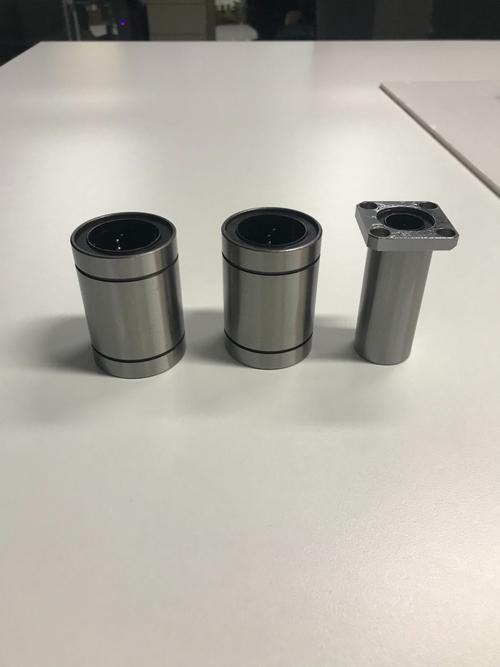Top 6 Bearing Suppliers: Key Factors to Select the Best Partner for Industrial Needs
Bearing suppliers play a critical role in industries ranging from automotive to aerospace by providing essential components that ensure machinery operates smoothly. Selecting the right supplier impacts product longevity, performance, and cost-efficiency. This guide explores key factors to identify trustworthy partners and optimize your supply chain.
Table of Contents
1. Top bearing suppliers 20232. Industrial bearing suppliers near me
3. High-quality bearing manufacturers
4. Global bearing suppliers list
5. How to choose reliable bearing suppliers

1. Top Bearing Suppliers 2023
The global bearing market is dominated by industry giants like SKF, NSK, and Timken, known for their precision engineering and extensive product portfolios. SKF, headquartered in Sweden, offers solutions for renewable energy and electric vehicles, while Japan-based NSK excels in automotive bearings. Timken specializes in tapered roller bearings for heavy machinery. Emerging suppliers in Asia, such as C&U Group, are gaining traction due to competitive pricing. When evaluating top suppliers, consider certifications like ISO 9001 and industry-specific compliance. Leading companies also invest in R&D to develop corrosion-resistant and high-temperature bearings, catering to evolving industrial demands.
2. Industrial Bearing Suppliers Near Me
Local suppliers reduce logistics costs and lead times, making them ideal for urgent orders. Use platforms like Thomasnet or IndustryNet to filter suppliers by location and capabilities. Attend trade shows like IMTS in Chicago to connect with regional vendors. Verify if local suppliers maintain adequate inventory for common bearing types like ball bearings or thrust bearings. Request samples to test tolerances (ABEC ratings) and material quality. Local partnerships also simplify after-sales support, such as returns or technical consultations. However, ensure they source materials ethically—some may import cheap steel from non-compliant mills, risking premature failure.
3. High-Quality Bearing Manufacturers
Quality hinges on material selection (chrome steel vs. ceramic), manufacturing precision, and testing protocols. Premium manufacturers use vacuum-degassed steel to minimize impurities, enhancing durability. Look for suppliers with in-house testing labs performing fatigue life analyses and vibration checks. Brands like Nachi-Fujikoshi employ advanced heat treatment processes to achieve HRC 60-65 hardness. For specialized applications, such as food processing, opt for stainless steel bearings with IP6X seals. Always review mill certificates and demand traceability documentation to avoid counterfeit products. Third-party audits, like those from SGS, add credibility to quality claims.
4. Global Bearing Suppliers List
A comprehensive list includes regional leaders: Schaeffler (Germany) for automotive bearings, JTEKT (Japan) for steering systems, and RBC Bearings (USA) for aerospace applications. Alibaba and Global Sources feature vetted Asian suppliers, but verify MOQs and Incoterms. For EU-based buyers, EUROPAGES aggregates ISO-certified suppliers. Diversify your sourcing strategy—combine established brands for critical applications and cost-effective alternatives for standard bearings. Monitor geopolitical risks; for instance, tariffs on Chinese imports may affect pricing. Utilize supplier databases with filters for certifications, production capacity, and export experience.
5. How to Choose Reliable Bearing Suppliers
Start by defining technical requirements: load capacity, speed ratings, and environmental conditions (e.g., high moisture). Evaluate suppliers’ financial stability via credit reports to avoid supply disruptions. Check online reviews and ask for client references in your industry. Negotiate flexible payment terms like LC at sight or TT transfers. Ensure they comply with REACH or RoHS regulations if exporting to the EU. Audit their factories virtually or in-person to assess CNC machinery calibration and QC processes. Finally, prioritize suppliers offering VMI programs or consignment stock to optimize inventory management.
Understanding these facets—from evaluating global leaders to implementing rigorous quality checks—equips you to make informed decisions. Whether you prioritize local responsiveness or cutting-edge technology, aligning with the right bearing supplier enhances operational efficiency and reduces downtime risks. Dive deeper into each criterion below to refine your sourcing strategy.
In conclusion, selecting the optimal bearing supplier requires balancing quality, cost, and reliability. By leveraging global networks, verifying certifications, and prioritizing transparent communication, businesses can secure partnerships that drive long-term success in competitive markets.




 13869596835
13869596835